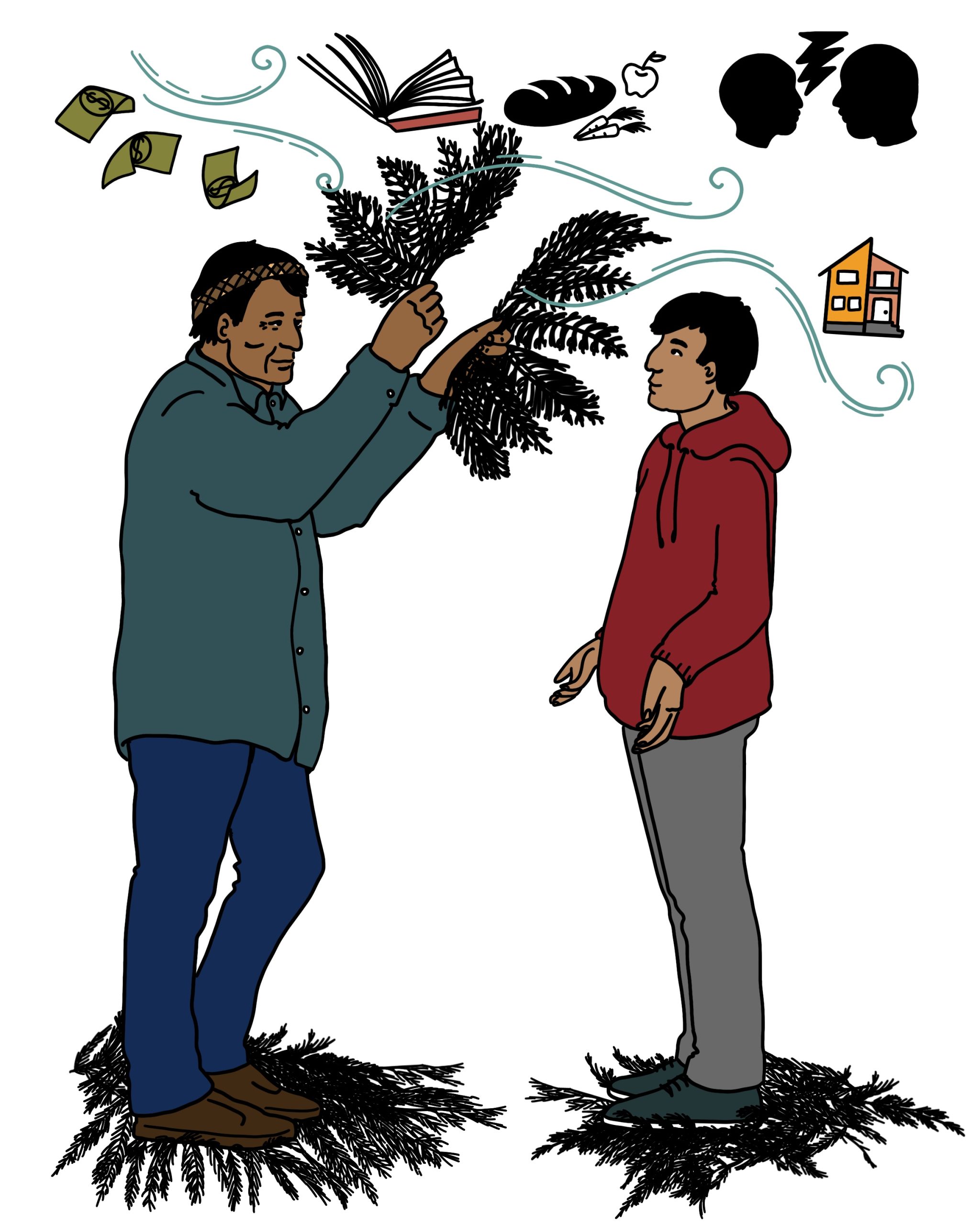Provide Holistic Support

“We use good medicine with students. We empower them, stand them up, and they lean on us.”
—Elder Amelia Washington
“Positive self-identity is so critical.”
—Marlene Erickson
“We are made up of physical, mental, emotional, and spiritual. We ask, ‘where is the spiritual component?’ If we negate that aspect of who we are, we are not complete.”
—Elder Darlene McIntosh
“Cultural reconnection is a healing journey.”
—Marlene Erickson
Reflection Questions
Holistic wellness includes balance between the mental, emotional, spiritual, and physical dimensions of a healthy and well-balanced life, all factors that Elders consider when advising and supporting others. Elders generously share their wisdom on traditional spiritual and cultural practices, such as brushing and smudging ceremonies, sweat lodges, harvesting medicines, and land- and water-based ceremonies—which all contribute to holistic wellness.
- Students’ emotional well-being is now recognized as a critical component of their academic success. How can your institution provide culturally appropriate supports to Indigenous students?
- How can you advocate for increased holistic support for students on your campus?

